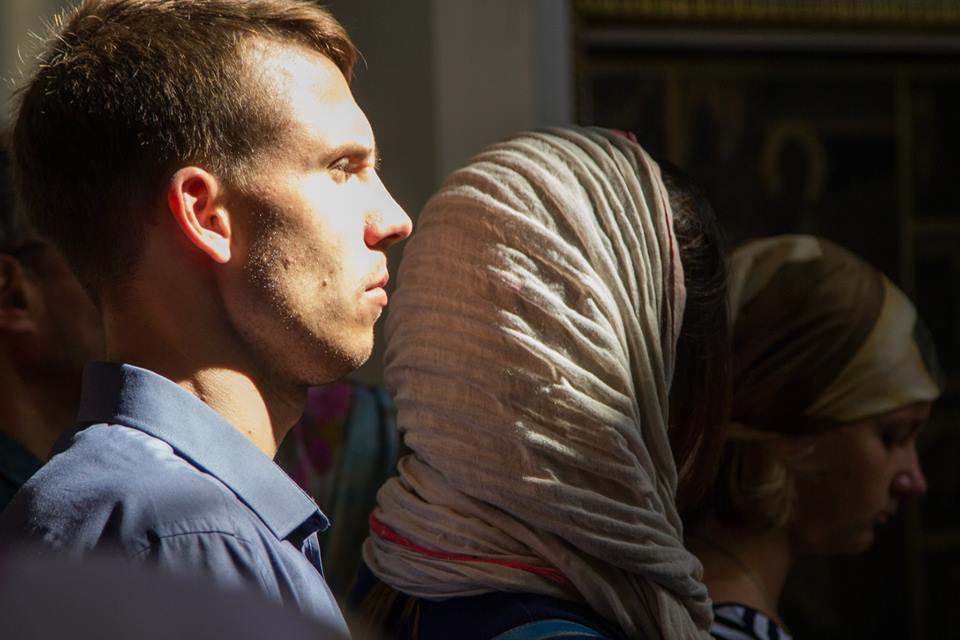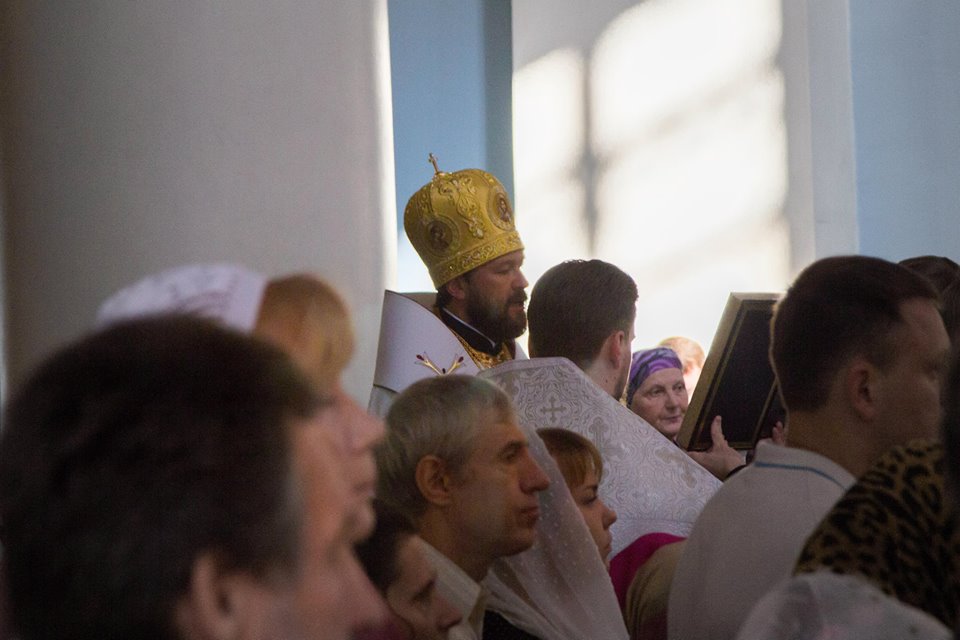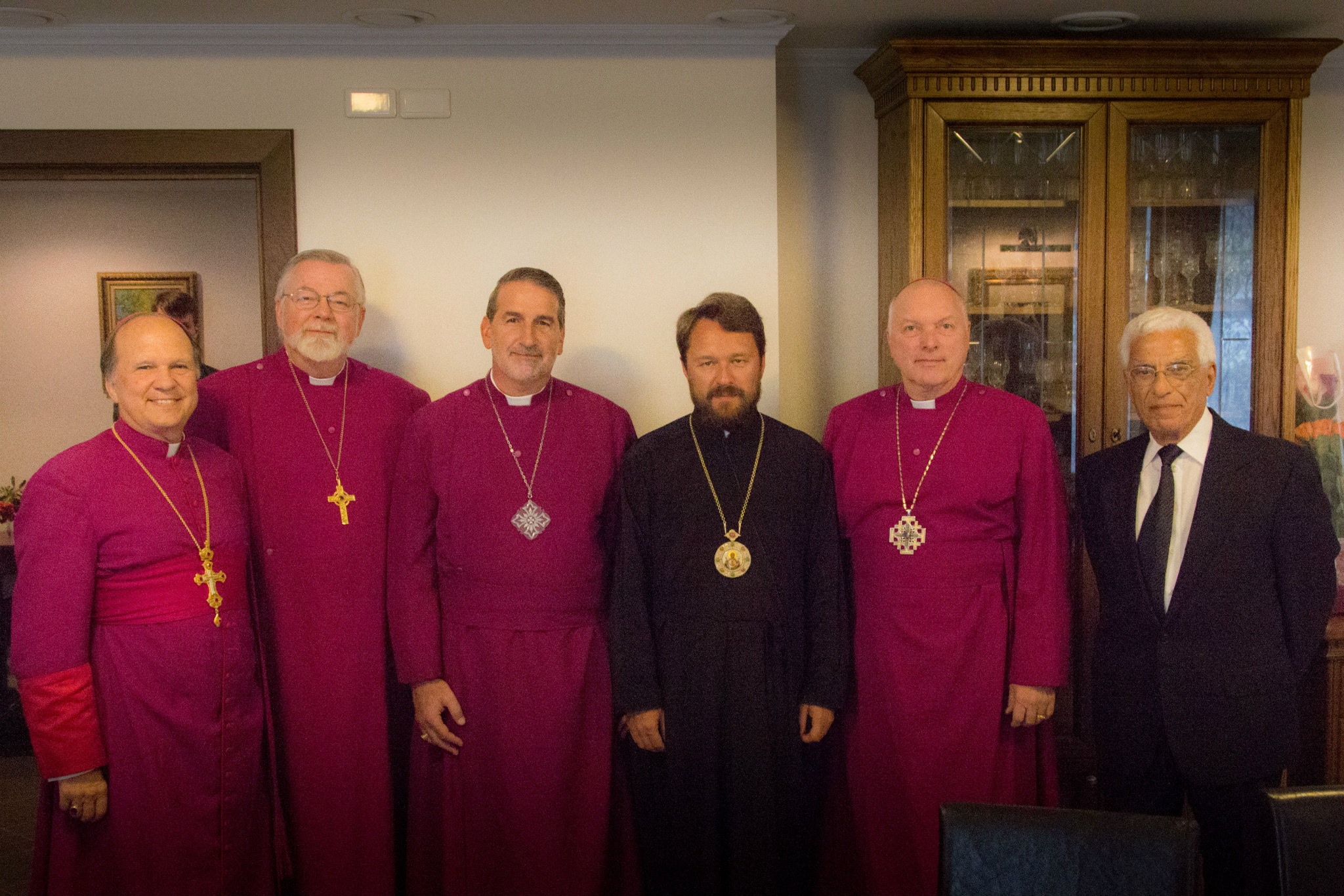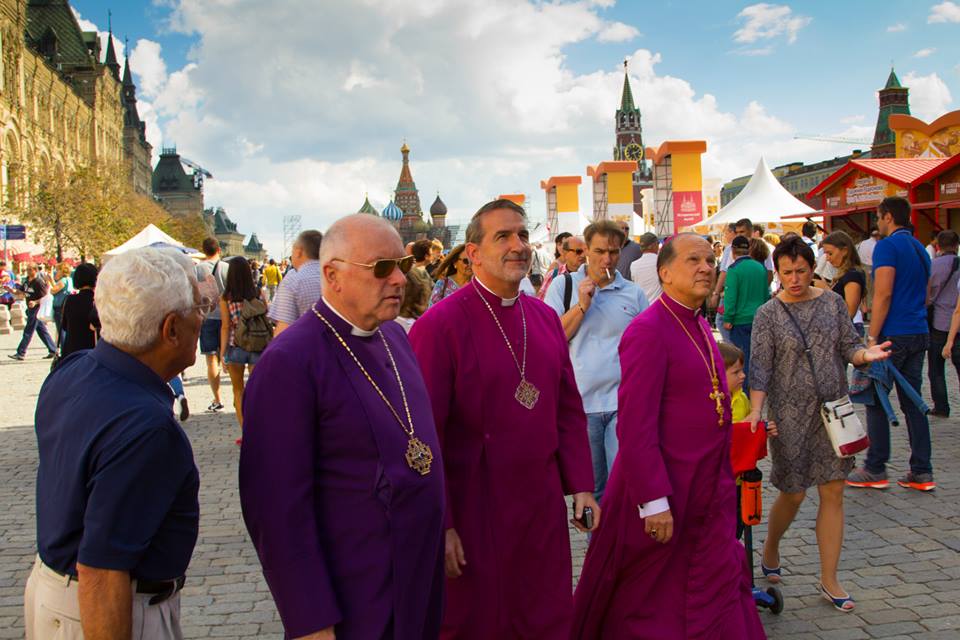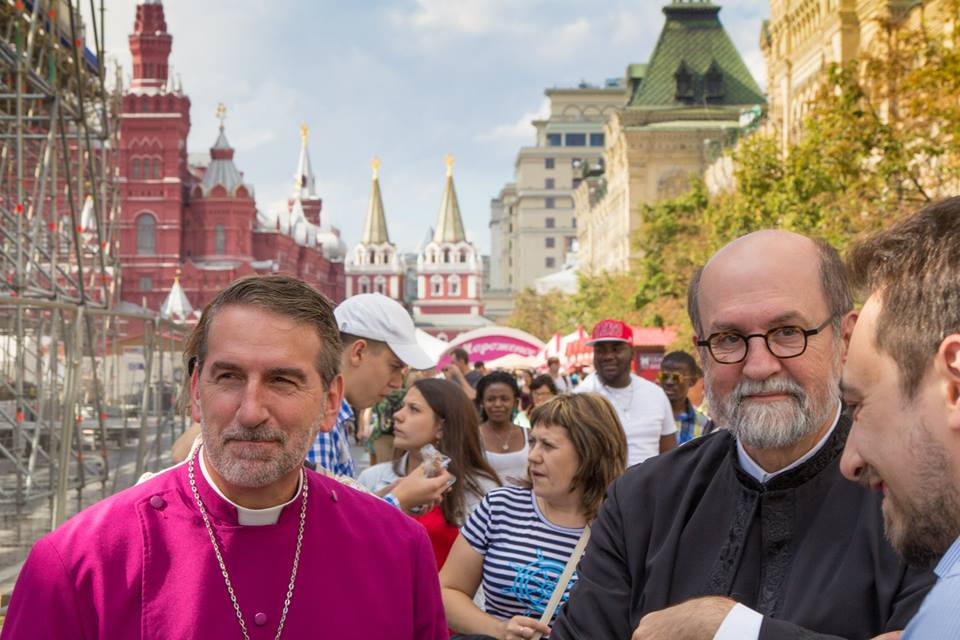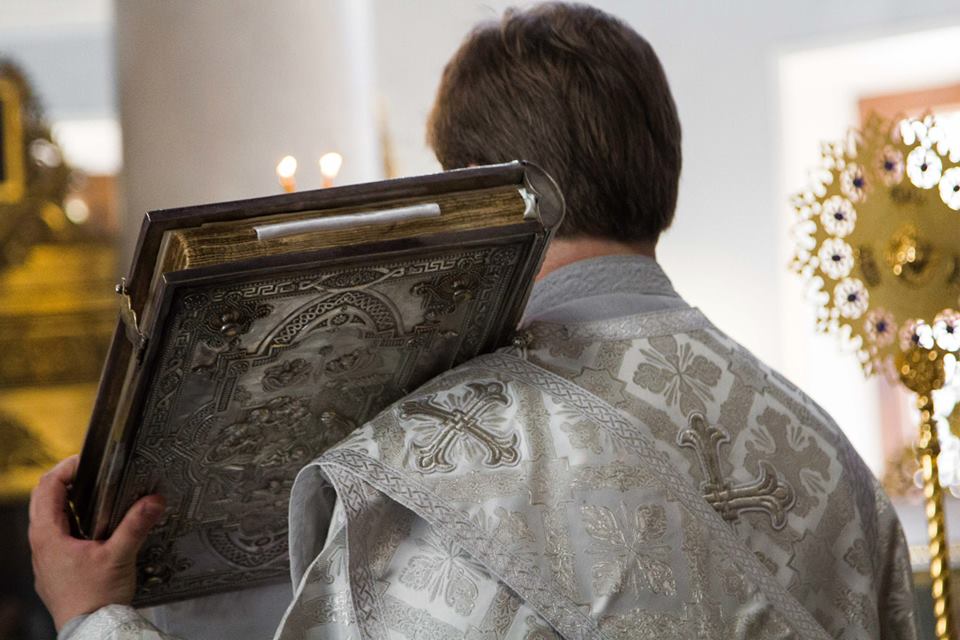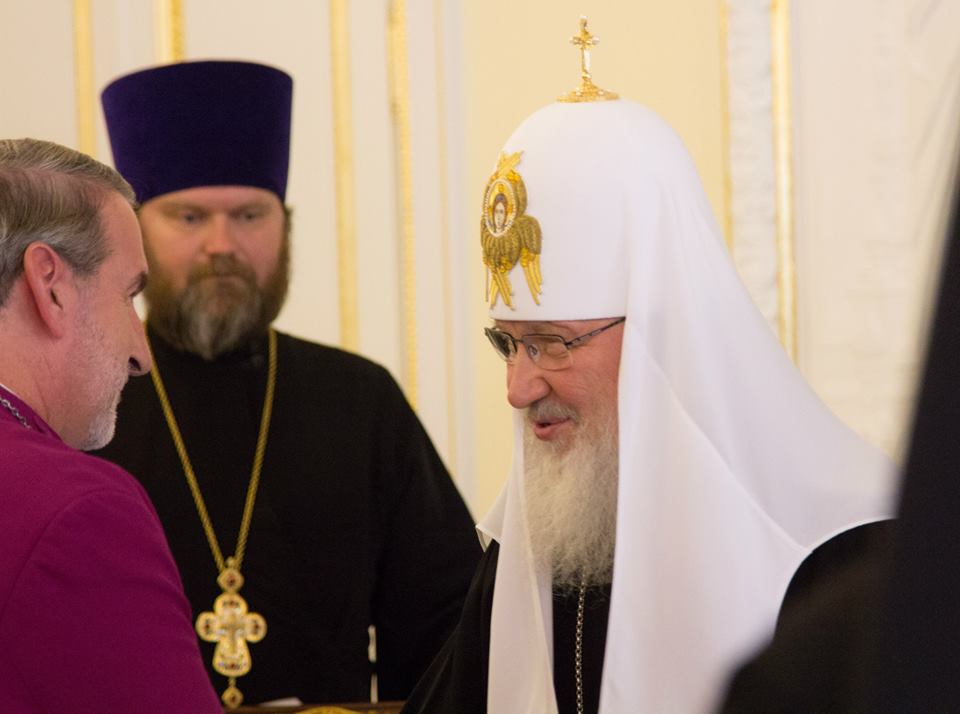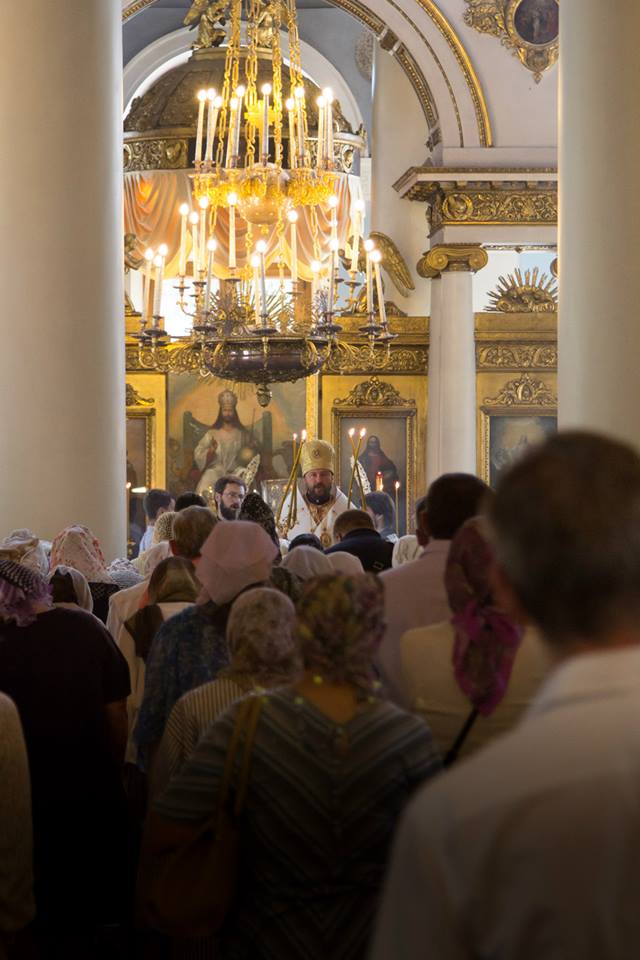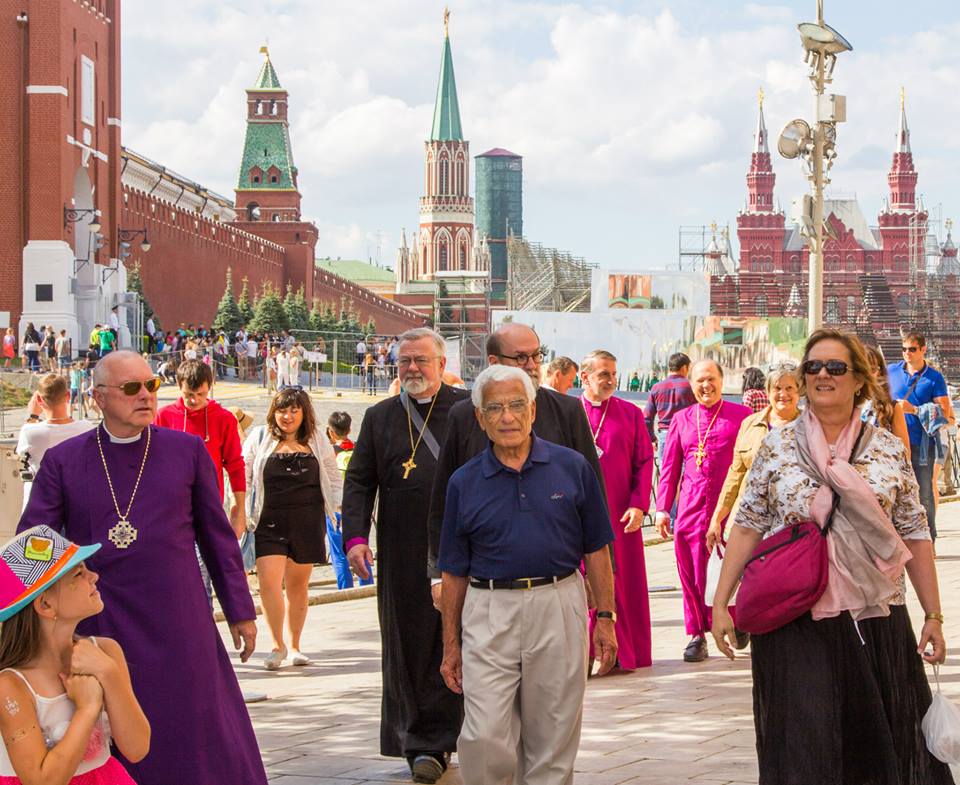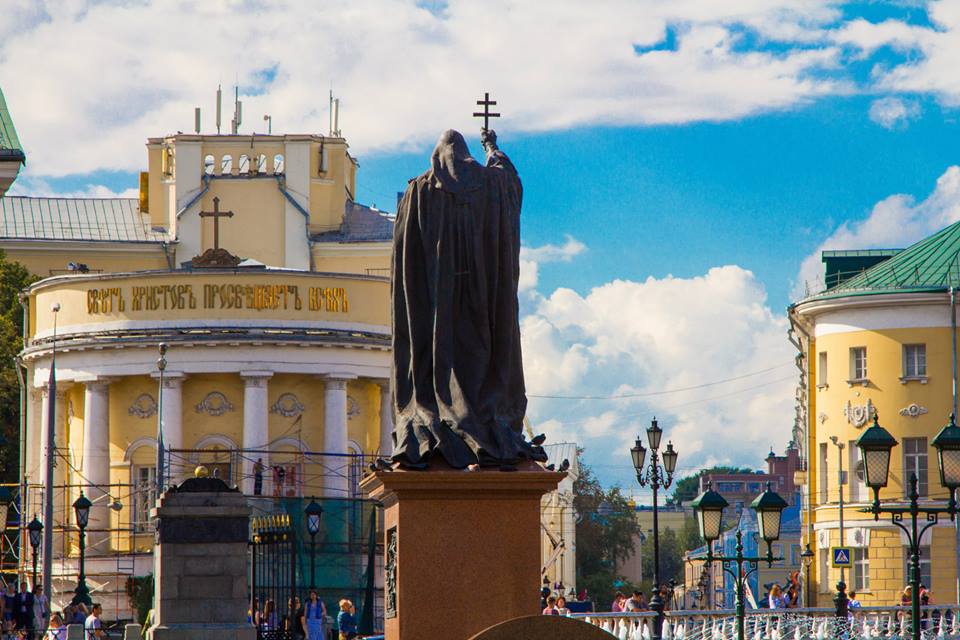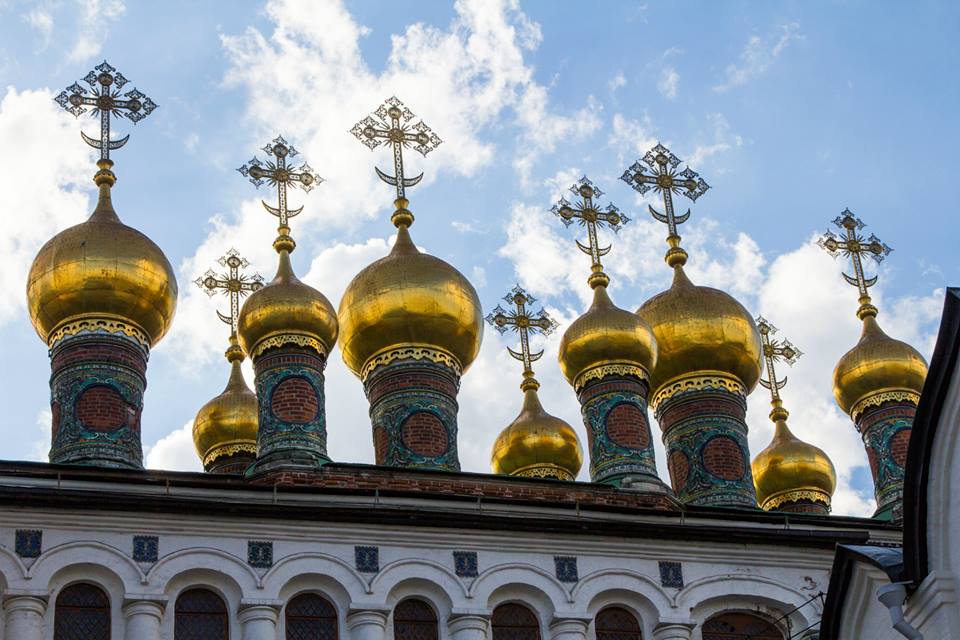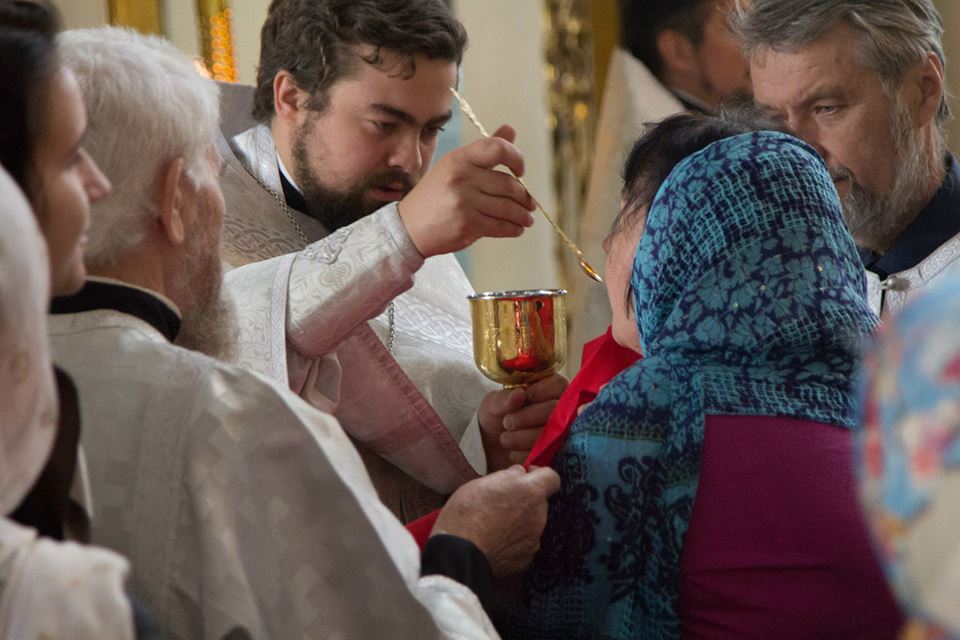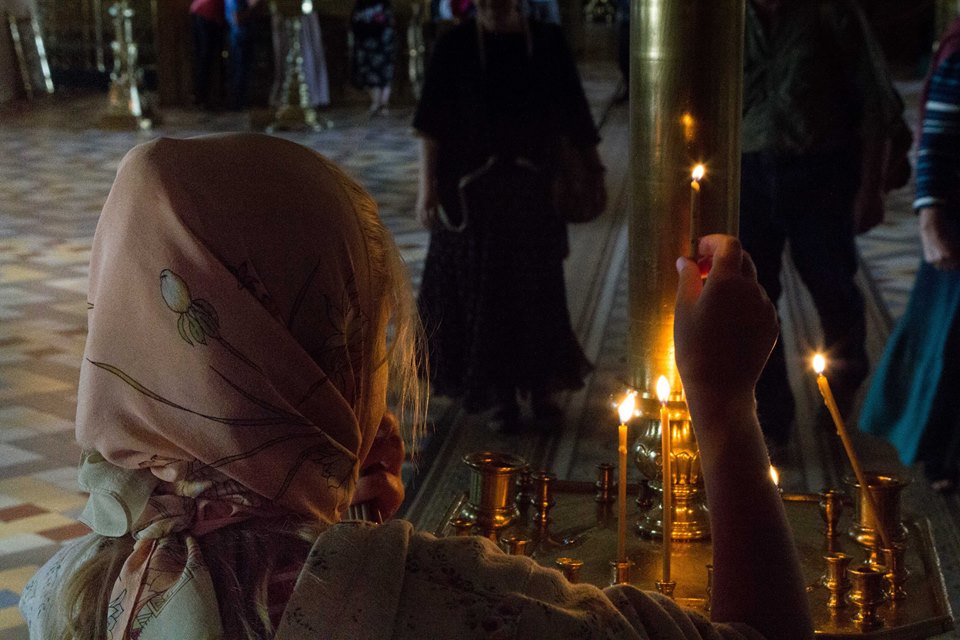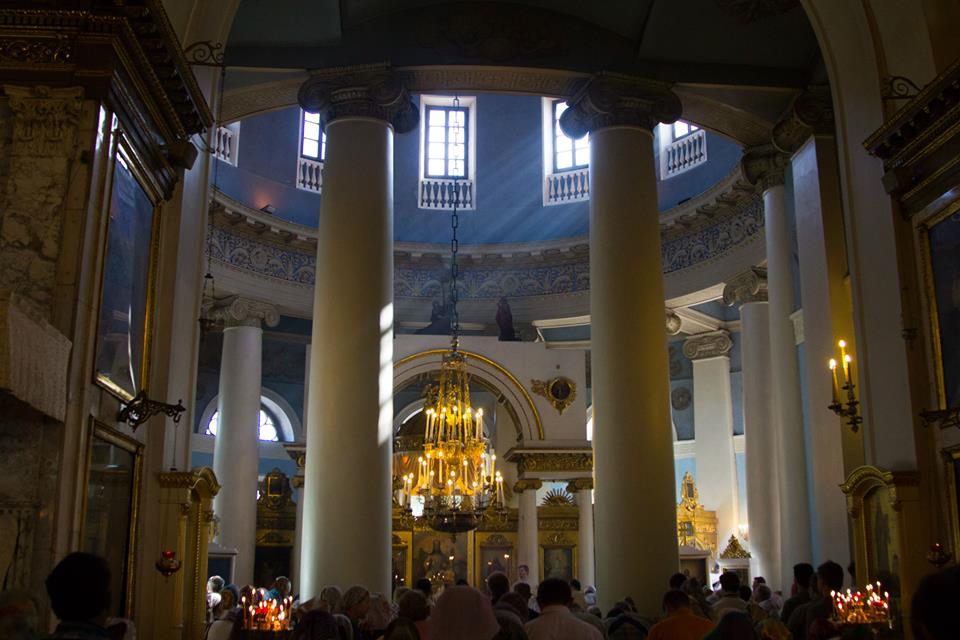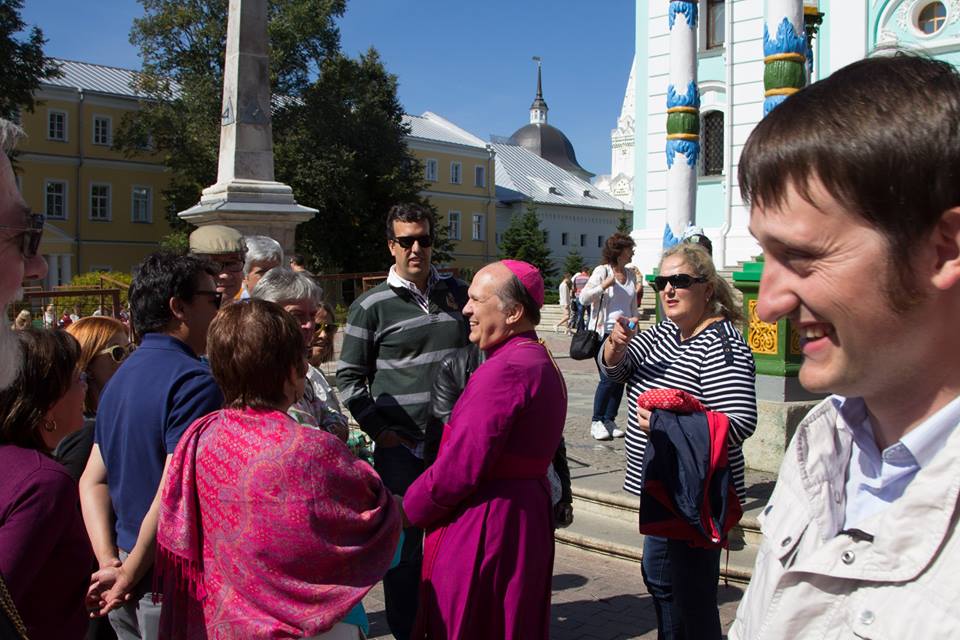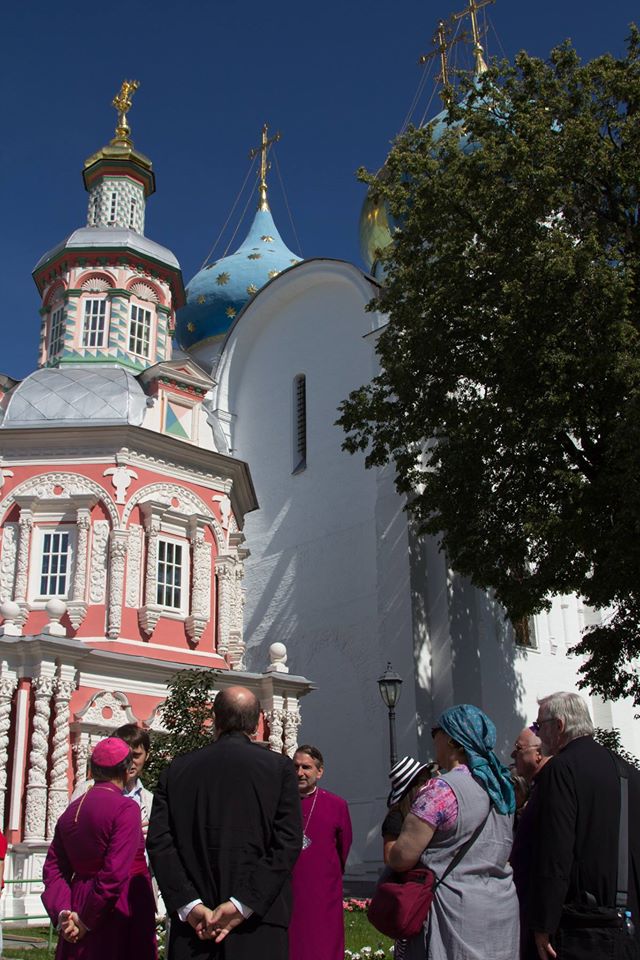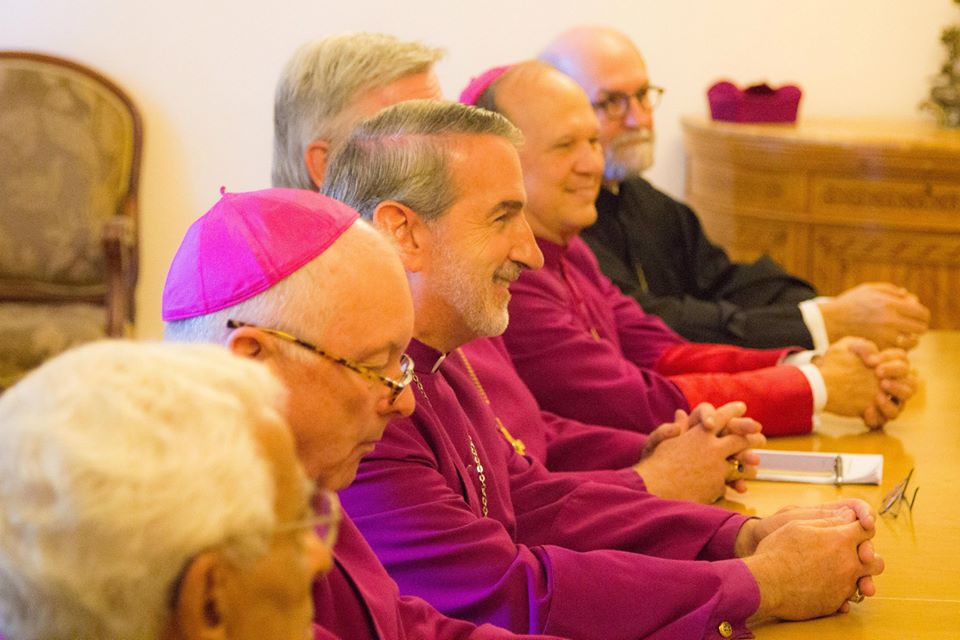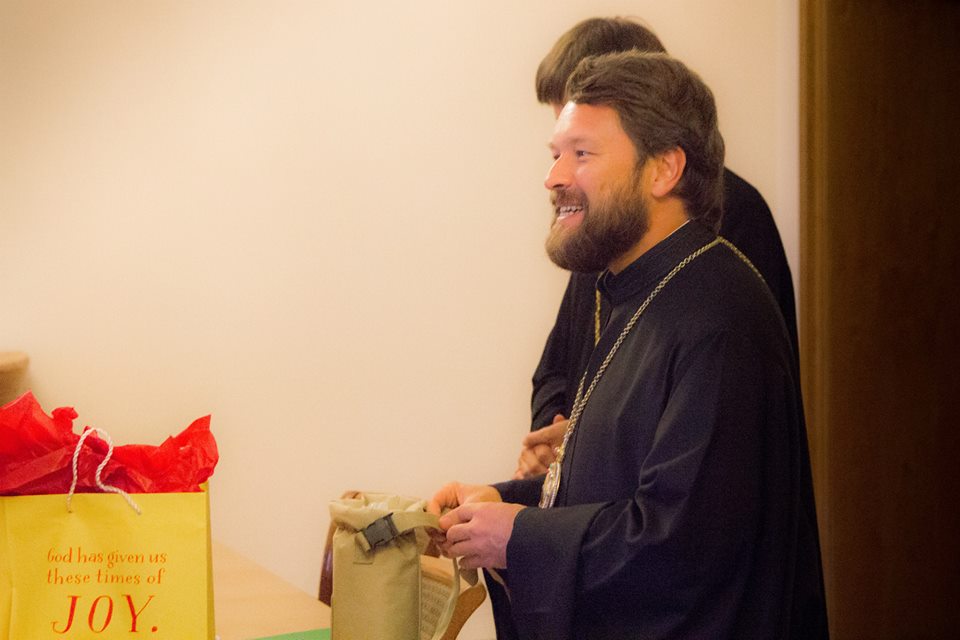By Ray Sutton via Forward in Christ:
Category: Slider
Rebuilding the Church
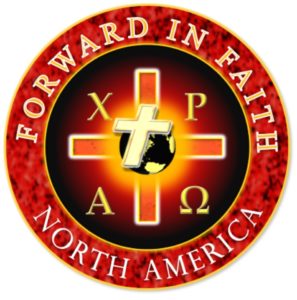 FORWARD IN FAITH presents “Rebuilding the Church in Difficult Times” on Saturday, Jan. 11, at the Church of the Holy Apostles in Fort Worth. The event begins with Holy Eucharist at 11 a.m. The presentation, based on events in the Old Testament books of Ezra, Nehemiah, Haggai, and Zechariah, follows at 11:30 a.m.
FORWARD IN FAITH presents “Rebuilding the Church in Difficult Times” on Saturday, Jan. 11, at the Church of the Holy Apostles in Fort Worth. The event begins with Holy Eucharist at 11 a.m. The presentation, based on events in the Old Testament books of Ezra, Nehemiah, Haggai, and Zechariah, follows at 11:30 a.m.
Holy Apostles is situated at 3900 Longvue Ave., Fort Worth, TX 76126. For further information about this free event, please call 817.560.7187 or email hapostles@swbell.net
This parish seminar is part of a series of events organized by Forward in Faith and the Benedictines of Christ the King.
Epiphany
We celebrated the great Feast of the Epiphany yesterday and with it looked to the Magi, the Wise Men, who in turn pointed us to Christ and revealed his nature in their gifts. Gold for kingship, frankincense for divinity and myrrh for embalming and death.
An epiphany, the Christ child is our divine king whose throne is the cross. But what of the Magi themselves? They were astronomers who followed a star, and some argue this was a supernova, a conjunction of planets or something else again, a miraculous event.
Perhaps it was all of these, but the Wise Men were more than astral calculators, they were wise, they looked for the truth and they found it, Incarnate, lying in a manger. So the Magi themselves are an epiphany. Pope Benedict XVI explains:
“They were “wise.” They represent the inner dynamic of religion toward self-transcendence, which involves a search for truth, a search for the true God and hence ‘philosophy’ in the original sense of the word. Wisdom, then, serves to purify the message of ‘science’: the rationality of that message does not remain at the level of intellectual knowledge, but seeks understanding in its fullness, and so raises reason to its loftiest possibilities.”
Loftiest possibilities? Heaven itself and the throne of glory, all to be found in the baby lying under a star in a manger.
O GOD, who by the leading of a star didst manifest thy only-begotten Son to the Gentiles; Mercifully grant that we, who know thee now by faith, may after this life have the fruition of thy glorious Godhead; through the same thy Son Jesus Christ our Lord. Amen.
So How Long is Christmas?
 I think it should not surprise us that in spite of the fact that the Christian Calendar (Kalendar) has a much longer history than the evolving, innovative Secular American Calendar, the Secular Calendar is winning. In fact, not only is it winning in the “secular world” (a redundant phrase) it is winning in Christian Churches with little sense of historicity who have eliminated the Calendar of the Church and replaced it with the “Christian Light” Calendar: Christmas (which has 12 days before December 25), Easter (which includes Good Friday) and Mother’s Day. While one might argue as to what is right or wrong, the reality is that most modern denominations and so-called “Bible Churches or “Non-denominational Churches” have eliminated virtually all Christian Feast Days.
I think it should not surprise us that in spite of the fact that the Christian Calendar (Kalendar) has a much longer history than the evolving, innovative Secular American Calendar, the Secular Calendar is winning. In fact, not only is it winning in the “secular world” (a redundant phrase) it is winning in Christian Churches with little sense of historicity who have eliminated the Calendar of the Church and replaced it with the “Christian Light” Calendar: Christmas (which has 12 days before December 25), Easter (which includes Good Friday) and Mother’s Day. While one might argue as to what is right or wrong, the reality is that most modern denominations and so-called “Bible Churches or “Non-denominational Churches” have eliminated virtually all Christian Feast Days.
In areas where these types of churches predominate, we should not be surprised when our own people seem to be surprised to learn or remember the Traditional Festivals or Feast Days of the Church. Sadly, whenever Feast Days are eliminated along with the Liturgical Seasons, we are met with a cultureless Christianity.
Unfortunately, this means that secular “holidays” have replaced religious holidays or religious holidays become secularist versions of what they were instituted to be. Religious sociologists have coined the phrase “civil religion” which in our context means that when the Church drops festivals and holy days, the culture establishes something to fill the void. I will not burden you with “Christmas Break” and “Easter Break” versus “Winter Break” and “Spring Break.”
So… how long is Christmas? The Secular world, which has dragged some modern churches with them, seems to have Christmas begin either right before or right after Thanksgiving. There is no opportunity to focus on savoring the taste of the Thanksgiving meal, and enjoy family – because a new secular feast is celebrated the day after Thanksgiving, called “Black Friday.” It’s Christmas everywhere. On one hand, not unlike the birth of all children, we do spend the last month making preparations for the birth – it’s just that the expectant mother is not really up to celebrating parties that month. She is much too busy for the event – called “the birth.” Traditional Christians call that last month preparing for the Birth of the Baby Jesus – “Advent.” It is after the birth that friends and family come to celebrate the birth of the child.
Sadly, for many who see the secular calendar as “official,” including modern churches, on the day after Christmas Day – it’s over! For traditional Christians, it has just begun, and for at least Twelve Day it continues, with Holy Days (holidays) almost every day. Traditional Churches follow the Biblical pattern: Jesus is born, Jesus is circumcised and named on the 8th Day (January 1) and the Wise Men (sometimes called Kings) arrive bearing their gifts on January 6 – the Feast of the Epiphany.
Of course, “enlightened people” will tell us that Jesus wasn’t born on December 25 and that the Wise Men took years to complete their trek, but that type of person apparently does not understand the difference between observing important events versus writing a substantial paper regarding historicity.
If one were to take that reasoning to a conclusion, then we should only celebrate Christmas every 33 years. Likewise, Good Friday and Easter – every 33 years, since most historians believe that Jesus’ birth, death and Resurrection took place within a 33-year period. It would be like saying that there is only one birthday for us – the day we were born, that every year we celebrate the anniversary of our birth and that we should NEVER celebrate that day except on the precise day at the precise time. Many people do not enjoy birthday parties at 2 A.M. but generally speaking, babies and parents do not always have a consultation before birth about the most convenient time for the mother. Moreover the “enlightened people” who are convinced that they have the inside track on Biblical generally offer no alternatives for observing these Biblical Feasts at the “historically correct” time.
So… is January 6 – or its Eve (Sundown on January 5) the last day of Christmas? Yes and No. Certainly the Twelve Days are the traditional days of the Christmas Season, and technically most Traditional Christians do not take ANY decorations down until the Epiphany – but, forty days after Christmas Day – again observed by traditional Christians – it is the Presentation of Christ in the Temple, The Purification of the Blessed Virgin Mary, which involves the Blessing of the Candles to be used that year in churches, as we sing the Song of Blessed Simeon, “To be a light to lighten the Gentiles, and to be the Glory of thy people Israel.”
Indeed – Epiphany proclaims by virtue of the Adoration of the Magi who are from Gentile lands, that this Messiah, awaited for by the Jews for centuries, is for ALL people – Jews and Gentiles, and on February 2, St. Simeon once again proclaims that reality. Ironically, many Americans who trace their heritage from Spain or a number of Hispanic countries have a cake served on Epiphany. In the cake is placed a Nino (baby figure) and the “winner” who finds the Christ Child in his or her piece of cake must now make and serve Tamales on February 2 – yes, the Feast day mentioned above.
So… how long is Christmas? Well, in one sense all year- since every Mass that is celebrated is a “Christ” Mass and the Incarnation is a present reality in the life of the Christian and the Church. In another sense, it is Twelve days long, and in yet another sense it is 40 Days long. But by then it is time for St. Valentine’s Day (no, this saint did not shoot arrows at peoples’ hearts) and St. Patrick’s Day (no, he did not drink green beer). But there it is.
We Christians have a choice – simply to go with the flow – do what the crowd does – or claim and reclaim our heritage. After all, there is no law that mandates either (St.) Valentine’s Day or St. Patrick’s Day, so maybe it is Hallmark which determines what is and what isn’t a Feast Day? Can we take a day off from school or work because “I’m tired” but would never take a day off for Good Friday? In the end the questions is – did “they” take our Christian Calendar away or did “we” simply allow it to be taken? The same principle can apply in terms of our Faith. If attending a church on Sunday were suddenly “against the law” as it is and has been in several countries, would attendance decline in adherence to the law or would it increase because “no one is going to tell me what I can and can’t do.”
If Christians were more firm in their Faith, much of the above would never have had to be written because all of the aforementioned observances would have continued since “it is what we always have done at all times and in all places” for over two thousand years.


